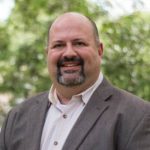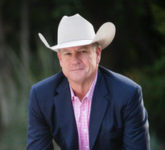Our most recent event focused on sustainability of working lands in Texas
C3 Financial Partners (formerly Texas Financial Partners) was pleased to host another productive Consume and Converse event. At this gathering, we focused on the importance of preserving working lands in Texas.
At the event, Dr. Roel Lopez, Director of the Texas A&M Natural Resources Institute, shared his insights on how working lands have evolved in Texas. He noted that there are approximately 142 million acres of working lands in the state, mostly in the form of farms and ranches. These lands are crucial to water and food supply, as well as national security.
Growth in both the economy and the population of the state, however, has led to increased market demand for real estate, which has led to an increase in the property value of working lands. The result has been that many property owners have chosen to make their working estates available for non-working uses, such as subdivision or commercial and residential development. As Dr. Lopez noted at the event, these circumstances have affected around 4.5 million acres of working lands and compromised the public benefit they hold for the people of Texas.
In the next 20 years, more families than ever in Texas history will pass their working lands to their heirs, but the younger generation is less attached to these lands than their forebears, and they may be more inclined to monetize the property in unsustainable ways. Conservation easements have proved to be a successful tool in preserving the integrity of working lands while also providing for those who stand to inherit it.
Conservation easements are voluntary agreements between landowners and qualified holders that limit a working land to designated uses. At our C&C event, James Oliver, CEO of the Texas Agricultural Land Trust, explained the benefits and drawbacks of conservation easements, and how families who would benefit from them can put them in place.
In response to the presentation, C3 Partner Celeste Moya said, “I spoke with several attendees that found the information to be very educational and helpful as they are having planning conversations with their clients. This is another tool they can utilize to help families protect their legacy across many generations.”
To conclude the conversation,C3 Senior Partner Carolyn J. Smith hosted a question and answer session. Attendees were especially interested in how conservation easements might be subject to eminent domain, as well as the role of the Texas Land Trust Council in their administration.
Carolyn also emphasized the role of life insurance as a tool for maintaining working lands across the generations. As she explained to the gathering, “Life insurance proceeds may be a source to fund future needs, such as operations and maintenance, buy-sell transactions between family members, and payment of estate taxes, among other factors.”
C3 is pleased to have hosted yet another successful C&C event. We hope it was beneficial to all participants, and we look forward to the next one!
To learn more or to request an invitation to our consume and converse event series, please contact Rebecca Bates.
 ™
™


